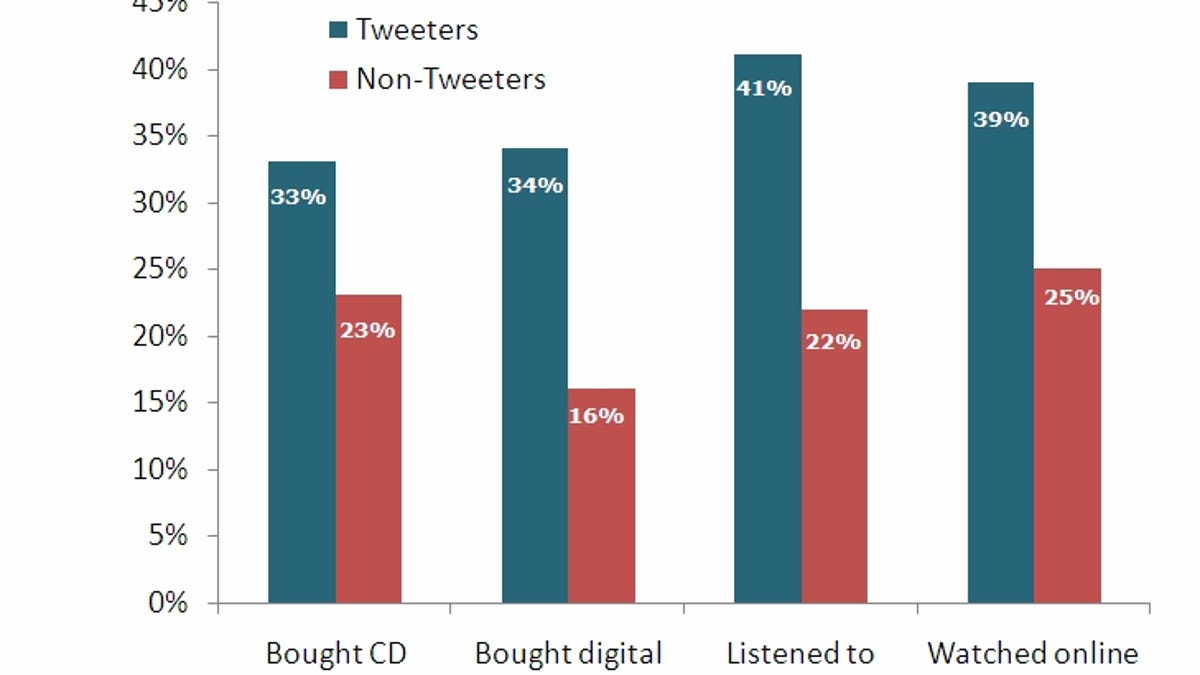Twitter as music marketing tool
Users of the micro-blogging service may be fertile marketing ground for music labels, but the labels must balance the conversation.
Recent research from NPD Group says that Twitter users are more engaged with music, both online and offline, than their non-tweeting counterparts and also are more likely to spend money on downloaded music.
This data obviously suggests that Twitter could be a valuable tool to music marketers, currently struggling to figure out the best ways to monetize music (as opposed to the existing strategy of suing listeners.) But it's hard to see a direct financial benefit until Twitter usage can more directly correlate to sales, including sales that are influenced by followers etc.
People on Twitter purchased 77 percent more digital downloads, on average, than those who were not tweeting. One-third listened to music on a social-networking site, 41 percent listened to online radio (compared with 22 percent of all Web users), and 39 percent watched a music video online (versus 25 percent of all Web users).
"NPD's latest music-acquisition study shows that there are segments of consumers who are more actively integrating Twitter as a key tool for communicating and networking," Russ Crupnick, entertainment industry analyst for NPD, said in a statement last month. "Based on their music-purchasing history, active Twitter users are simply worth more to record labels and music retailers than those who are not using Twitter."
Crupnick also noted in the statement that Twitter has the potential to help foster the discovery of new music, and improve targeted marketing of music to groups of highly-involved consumers, but only if used cautiously and judiciously. "There must be a careful balance struck between entertainment and direct conversation on one hand, and marketing on the other," he said.
The underlying theme in this report is that Twitter users are slightly more connected--or perhaps more "always on" the Internet, and accordingly consume more music online. The disparity in data isn't dramatic enough to suggest that Twitter users are completely technocrats, but it does suggest that there are low-cost ways to reach music consumers--and to get them to pay for music, something the major labels can't seem to figure out on their own.
Follow me on Twitter @daveofdoom.


